The Day The Dinosaurs Died: The Cataclysmic Asteroid Impact

Introduction
65 million years ago, a catastrophic event changed the course of evolution on the planet earth. The impact of a massive asteroid in the Yucatan Peninsula unleashed a chain of events that led to the extinction of the dinosaurs and 75% of all species on the planet. This event has been studied extensively by scientists to understand the role of asteroids in shaping the history of our planet. In this article, we will explore the cataclysmic asteroid impact and its far-reaching effects.
The Asteroid
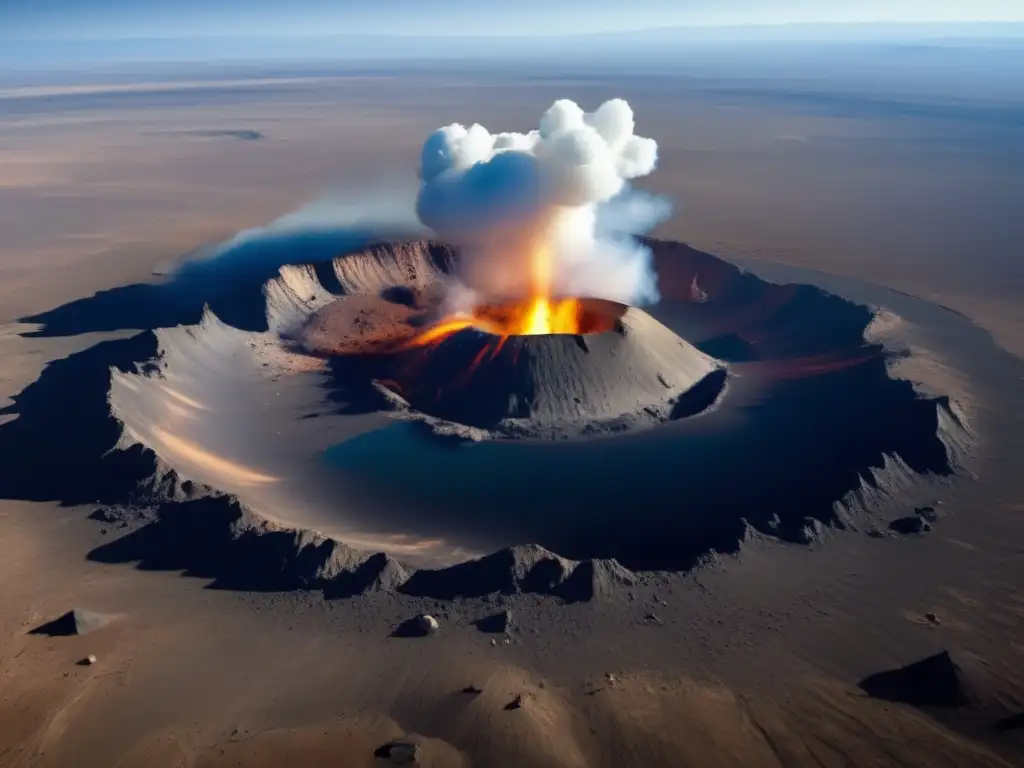
The Discovery of the Chicxulub Crater
In 1978, scientist Walter Alvarez discovered a layer of iridium-rich clay that spanned the globe and dated back to the time of the extinction of the dinosaurs. Further study led to the discovery of a massive impact crater in the Yucatan Peninsula in Mexico, known as the Chicxulub crater. It is estimated that the asteroid responsible for the crater was about 10 kilometers in diameter and impacted the earth at a speed of 20 kilometers per second, with an energy equivalent to 100 million times the energy of the atomic bomb dropped on Hiroshima.
The Effects of the Impact
The impact of the asteroid caused widespread destruction. Shock waves, earthquakes, and wildfires were triggered, and dust and debris were thrown into the air, blocking out the sun's rays and causing a global cooling effect. Acid rain and tsunamis also contributed to the extinction of many species. The asteroid impact also caused the release of sulfates and carbon dioxide into the atmosphere, which led to long-term climate change.
The Role of Asteroids in the History of the Earth
Asteroid impacts have played a significant role in shaping the history of our planet. They have caused mass extinctions, but they have also contributed to the evolution of life on earth. Some scientists believe that the amino acids and organic molecules necessary for the origin of life on earth were brought here by asteroids. Asteroids are also a source of rare metals and minerals that could be valuable in space exploration and colonization.
The Current State of Research
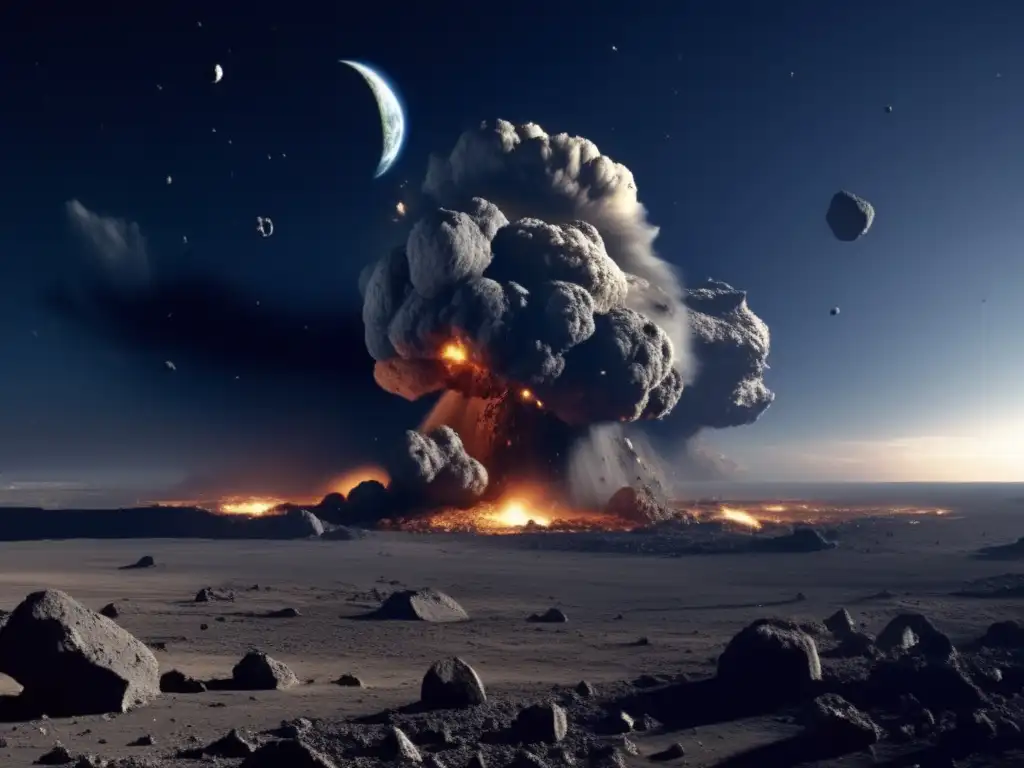
Studying the Chicxulub Crater
Scientists are still studying the Chicxulub crater and its effects on the planet. Recent research has shown that the asteroid impact may have triggered massive volcanic eruptions in India, which contributed to the extinction of species. New technologies are being developed to better understand the composition of asteroids and the likelihood of future impacts. The discovery of near-earth objects and potential asteroid impact scenarios has led to increased efforts to develop systems to detect and deflect asteroids.
Implications for Space Exploration
The study of asteroid impacts has important implications for space exploration. Understanding the composition of asteroids and their potential impact scenarios is essential to ensuring the safety of manned missions in space. Asteroids are also a potential source of resources that could be used in space exploration and colonization. Recent initiatives by NASA and other space agencies to explore and mine asteroids could lead to a new era of space exploration.
The Importance of Public Awareness
Public awareness of asteroid impacts and their potential effects on the planet is essential. Initiatives to educate the public about the importance of asteroid research and detection could help to prevent future catastrophic events. Increased public support for space exploration and asteroid mining could also lead to advancements in technology and innovation.
FAQs
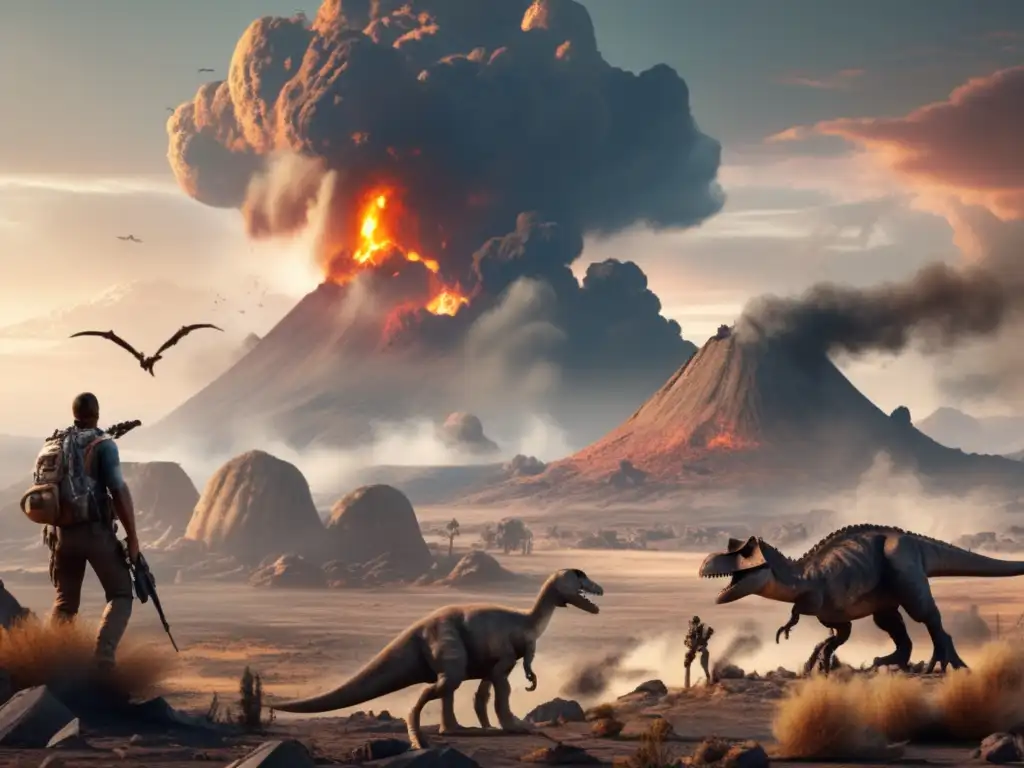
-
Could an asteroid impact cause another mass extinction?
Yes, an asteroid impact is one of the few events that could cause a mass extinction on the scale of the extinction of the dinosaurs. Increased efforts are being made to detect and deflect potentially hazardous asteroids.
-
Is it possible to mine asteroids?
Yes, several initiatives by space agencies and private companies are underway to explore and mine asteroids for resources. Asteroids are a potential source of metals, minerals, and water that could be used in space exploration and colonization.
-
Can an asteroid impact be prevented?
Potentially, yes. Detection systems and methods for deflecting asteroids are being developed, but they require significant investment and support from governments and the public.
-
What is the likelihood of an asteroid impact in the near future?
The likelihood of an asteroid impact is relatively low, but it is still a possibility. The discovery of near-earth objects and potential impact scenarios has led to increased efforts to develop detection and deflection systems.
-
What can individuals do to support asteroid research?
Individuals can support initiatives to increase public awareness of asteroid impacts and their potential effects on the planet. They can also support efforts to develop detection and deflection systems through advocacy and political action.
Conclusion
The impact of the asteroid that caused the extinction of the dinosaurs serves as a reminder of the potentially catastrophic effects of asteroid impacts. The study of asteroids and their potential impact scenarios has important implications for space exploration and the future of humanity. Increased public awareness and support for asteroid research and detection could help to prevent future catastrophes and advance our understanding of the universe. Thank you for reading and please leave your thoughts in the comments section below.
Additional Resources
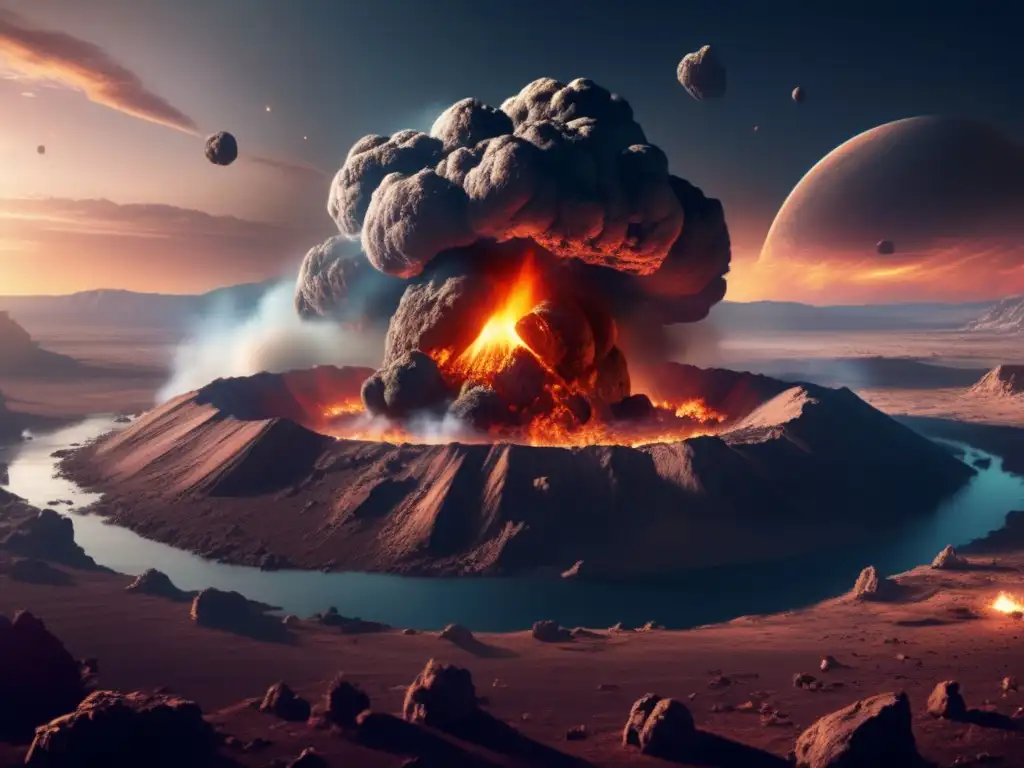
For more information on asteroid impacts and related topics, please visit the following websites:
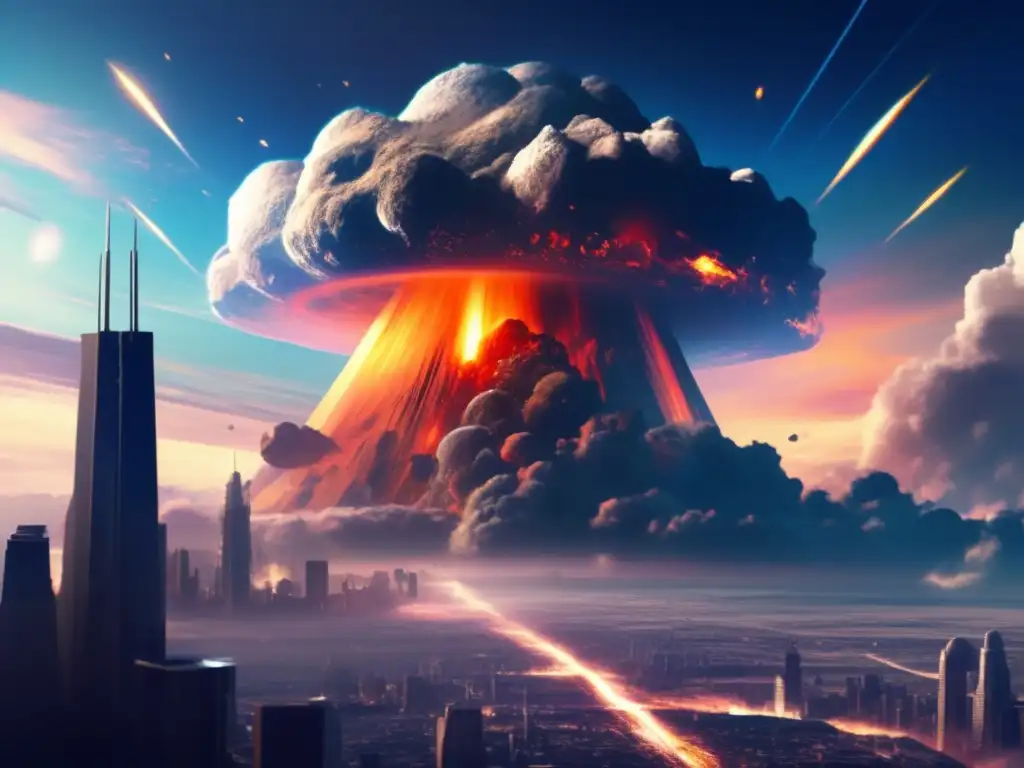 From Skies To Ground: Unraveling The Asteroid-Dinosaur Connection
From Skies To Ground: Unraveling The Asteroid-Dinosaur Connection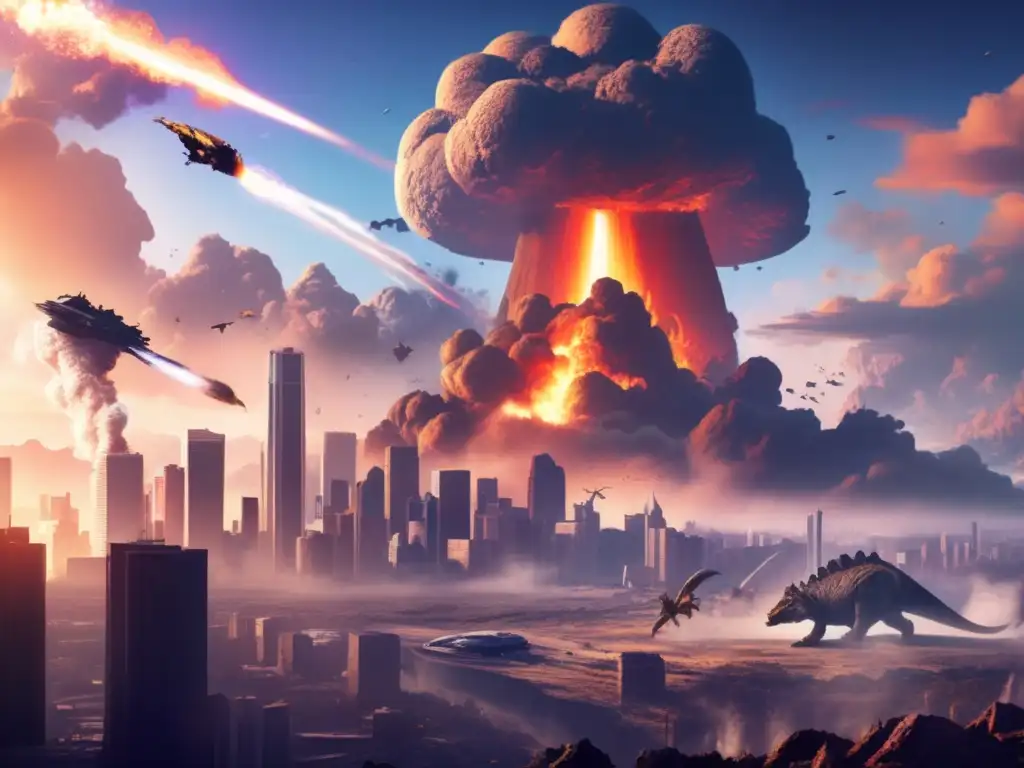 K-T Event: Deciphering The Role Of Asteroids In Dinosaur Extinction
K-T Event: Deciphering The Role Of Asteroids In Dinosaur Extinction The Iridium Layer: How Asteroids Left A Global Fingerprint
The Iridium Layer: How Asteroids Left A Global FingerprintIf you want to discover more articles similar to The Day The Dinosaurs Died: The Cataclysmic Asteroid Impact, you can visit the Asteroids and Dinosaurs category.
Leave a Reply

Articulos relacionados: